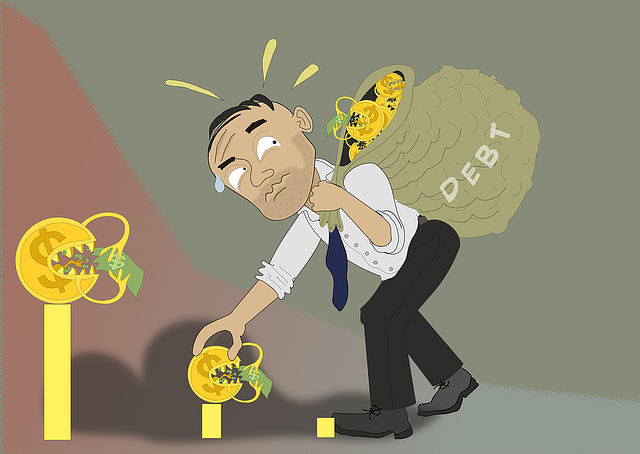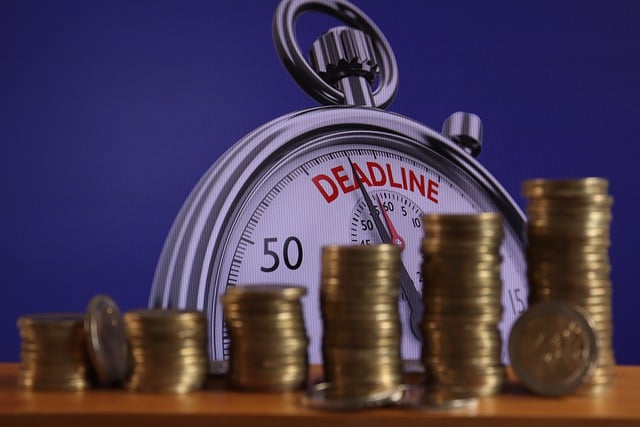Debt consolidation with poor credit is a strategic approach to managing multiple high-interest debts. By combining these debts into one loan with a lower interest rate, individuals can simplify repayment and save on interest payments. Tailored options for those with low credit scores, like debt consolidation loans bad credit, offer an accessible way to reduce financial burden, making it a key strategy for overcoming financial challenges. Understanding pros and cons is essential before proceeding.
Looking to manage debt but struggling with poor credit? Discover affordable debt management plans tailored for all credit scores. This comprehensive guide explores strategies like debt consolidation, credit repair, and effective high-interest debt management techniques. Learn essential steps for financial stability, understand debt relief programs, and reclaim your financial future. Explore these options today and take control of your finances despite poor credit.
- Understanding Debt Consolidation for Poor Credit
- Exploring Credit Repair Options: A Comprehensive Guide
- Strategies for Affordably Managing High-Interest Debts
- Building a Plan: Steps to Financial Stability
- Debt Relief Programs: What You Need to Know
- Reconstructing Your Financial Future with Consistency
Understanding Debt Consolidation for Poor Credit

Debt consolidation is a strategy that can help individuals with poor credit manage their debts more effectively. It involves combining multiple high-interest debts into one loan with a lower interest rate, making repayment easier and saving money on interest payments. For those struggling with a variety of high-interest debt, this approach can be particularly beneficial, especially when tailored to suit the specific financial situation.
When considering debt consolidation with poor credit, it’s crucial to explore options that offer flexible terms and are designed for individuals with low credit scores. Debt consolidation loans bad credit, specifically targeted at aiding those with less-than-perfect credit, can provide a more accessible entry point. These loans allow borrowers to consolidate high-interest debt, offering the potential to save on interest and make repayment more manageable. By simplifying the repayment process, debt consolidation loans can be a game-changer for folks navigating the challenges of multiple debts and high-interest rates.
Exploring Credit Repair Options: A Comprehensive Guide

Exploring Credit Repair Options offers a lifeline to many individuals struggling with high-interest debt and less-than-perfect credit scores. One popular strategy, debt consolidation with poor credit, involves bundling multiple debts into a single loan, often at a lower interest rate. This approach can significantly simplify repayment by reducing the number of payments needed each month and potentially saving money on interest charges.
However, before diving in, it’s crucial to understand the pros and cons of debt consolidation for poor credit. While it can provide relief from crushing interest rates, it may require a solid financial plan and discipline to succeed. For debt consolidation help for young adults with poor credit, exploring options like secured loans or working with non-profit credit counseling agencies can be beneficial. These services often offer guidance on budgeting, debt management, and even educational resources to empower individuals in their financial journey towards recovery.
Strategies for Affordably Managing High-Interest Debts

Managing high-interest debts can be a challenging yet essential step towards financial stability, especially for individuals dealing with less-than-perfect credit scores. One effective strategy is debt consolidation with poor credit. This involves combining multiple high-interest debts into a single loan with a lower interest rate, making repayment more manageable. For instance, debt consolidation programs for people on disability can offer tailored solutions, allowing them to consolidate their debts and gain control over their finances without compromising their benefits.
When considering debt consolidation loans for poor credit, it’s crucial to look for lenders offering flexible terms and instant approval options. These loans can provide a clear path to debt management by simplifying repayment schedules and potentially reducing overall interest paid. However, it’s essential to evaluate your financial situation and understand when consolidating is the best course of action. When should you consolidate? Look for times when interest rates are low, your credit score has improved, or you have a stable income to handle the new loan payments without causing further strain on your budget.
Building a Plan: Steps to Financial Stability

Building a financial stability plan starts with understanding your current financial situation. The first step is to thoroughly assess your income, expenses, and existing debt obligations. Create a detailed budget that accurately reflects your spending patterns, identifying areas where adjustments can be made to free up extra funds for repayment. This involves prioritizing debts, especially high-interest credit card balances, through methods like debt consolidation with poor credit.
Next, explore various debt relief programs tailored for individuals with low credit scores. The best debt relief programs for poor credit often include strategies such as credit repair debt consolidation, which refinsches existing loans at lower rates, making them more manageable. Engaging with reputable financial advisors or exploring government-backed debt help UK initiatives can provide access to expert guidance and customized solutions, ultimately leading to a clearer path towards financial stability.
Debt Relief Programs: What You Need to Know

Debt relief programs offer a lifeline for individuals struggling under the weight of financial obligations, especially those with less-than-perfect credit. One popular approach is debt consolidation, which involves combining multiple debts into a single loan with a lower interest rate. This strategy simplifies repayment by reducing the number of payments needed each month and can significantly free up cash flow. For individuals with poor credit, securing traditional debt consolidation loans might be challenging, but it’s not impossible.
There are specialized programs designed to cater to folks in this situation, focusing on providing access to low-interest rate debt consolidation loans tailored to their needs. These programs often work by negotiating with creditors or using government-backed initiatives that offer more flexible terms and lower rates. Additionally, debt consolidation tips for single parents with bad credit can include creating a strict budget, prioritizing high-interest debts first, and seeking professional financial counseling to navigate the options effectively and choose the best method for their unique circumstances, ensuring they get back on track financially.
Reconstructing Your Financial Future with Consistency

Reconstructing your financial future is a journey that requires dedication and consistency, especially when dealing with debt consolidation for poor credit. Many individuals, particularly young adults in the UK, find themselves burdened by debt at an early stage of their lives. However, with the right approach, it’s possible to turn this situation around. Debt consolidation help for young adults with poor credit is designed to provide a structured plan, allowing them to regain control over their finances.
By consistently adhering to a debt management strategy, you can start to see progress and begin to break free from the cycle of high-interest debt. The process involves consolidating multiple debts into one manageable loan, which often comes with a lower interest rate. This not only simplifies repayment but also helps individuals get out of debt fast with poor credit consolidation. With each successful payment, you’re one step closer to financial freedom and can look forward to a brighter future.
Debt consolidation for those with poor credit is not only achievable but also a powerful tool for financial reconstruction. By understanding options like debt management plans and credit repair strategies, individuals can take control of their finances. The key lies in consistency and making informed choices. With the right approach, managing high-interest debts becomes more affordable, paving the way to a stable and debt-free future. Remember, seeking professional guidance is essential when navigating these financial journeys.
